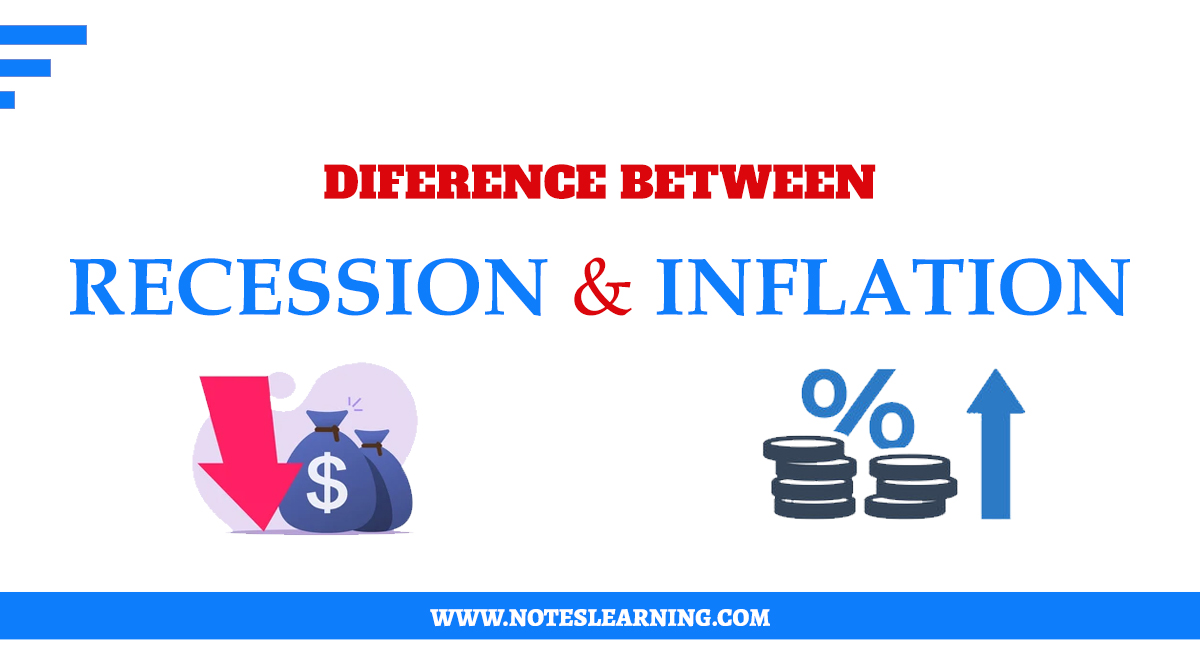Introduction
Recession and inflation are two very commonly misunderstood terms. Most of the time, people use these terms as synonyms but they represent different situations in an economy. Both of them have certain defined characteristics.
Recession is an economic condition which is characterized by a widespread decrease in various economic indicators, such as gross domestic product (GDP), employment rates, consumer spending, and business profit. Recession occurs when an economy has two consecutive quarters of negative economic growth.
Inflation is another important economic concept. Inflation means the decrease in purchasing power of money. It refers to the general increase in the prices of goods and services over time. Inflation occurs due to the imbalance between the supply and demand of goods and services. Such imbalance leads to overall increase in price in the economy leading to inflation.
Difference between Recession and Inflation
| Basis | Recession | Inflation |
Definition | It is defined as a period of serious economic decline distinguished by contraction in economic activities for at least two consecutive quarters. | Inflation is defined as a sustained increase in the general price level of goods and services over time. |
| Impact | Recession is characterized by decline in overall economic activity such as negative GDP, high unemployment rates, reduced consumer spending, and declining investments. | Inflation impacts the purchasing power of money, decreasing the value of money and reducing the purchasing power of consumers. |
| Indicator | Negative GDP growth, increasing unemployment rates, declining business profit, reducing consumer spending, decreasing investment etc. are some indicators of Recession | Rise in prices, increase in Consumer Price Index (CPI), erosion of the purchasing power of money are some of the indicators of Inflation. |
| Causes | Factors like decline in consumer spending, financial crisis, weak economic policy, external shocks, decrease in investment etc. are responsible for economic recession. | Factors like imbalance in demand and supply, excessive money supply, increase in cost, expectation of consumers, lowering interest rate, inflation expectation, increase in consumer spending etc. cause inflation. |
| Implication | Recession leads to unemployment, reduced income, financial insecurity, decline in business sales, lower profit margin, cost cuts etc. | Inflation leads to reduction in purchasing power of people, increase in production cost, lower profit margins. |
| Central Bank Response | The Central Bank usually goes for implementation of expansionary monetary policies by reducing interest rates, easing open market operations, increasing money supply, encouraging credit availability etc. | During inflation, the central bank employs contractionary monetary policy by increasing interest rate, reducing money supply etc. |
| Measurement | Economic recession is measured using GDP, Unemployment Rate, industrial production, business investment, stock market performance etc. | Consumer Price Index, Producer Price Index, GDP Deflator, Personal Consumption Expenditure Price Index etc. are some techniques to measure inflation. |
Reference

